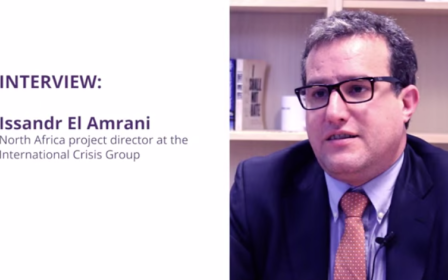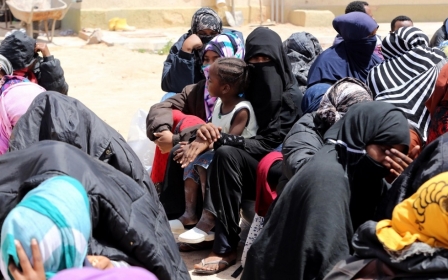Rights organisation calls for amendment of Libyan terrorism law

Libya’s elected parliament risks breaking international law and human rights treaties if it does not urgently amend provisions of a counterterrorism law, warned Human Rights Watch in a statement on Wednesday.
The Law on Combatting Terrorism, adopted on 14 September 2014, could be used to curtail free speech and rights to peaceful assembly and movement, said the rights group in the statement.
“Libyan authorities have legitimate concerns about the growing influence of extremist armed groups and the threat they pose to Libyans and foreign migrants alike,” said Sarah Leah Whitson, HRW Middle East and North Africa director.
“But legislators need to make sure that the law against terrorism can’t be used to suppress basic rights,” she added.
The statement comes ahead of Libya’s Universal Periodic Review at the Human Rights Council in Geneva, an assessment of each member country’s human rights record every four years.
HRW has encouraged member states to press Libya to amend the law and other legal provisions that curtail freedoms.
The security situation in Libya has been tense since Muammar Ghaddafi’s overthrow in 2011, but has deteriorated further since last summer as two rival governments have been vying for legitimacy – an internationally recognised House of Representatives in the east and, the self-declared General National Council in the west.
In recent months, militias and groups loyal to Islamic State (IS) have also managed to gain ground in the country, further exasperating human rights abuses with increased reports showing the execution of foreign nationals and public punishments that include flogging and executions.
Islamic State fighters have claimed responsibility for the beheadings of 21 Coptic Christians in Libya mostly from Egypt in February and 28 Ethiopian Christians in April.
HRW’s main concerns include powers for the court to limit freedoms of individuals persecuted under the act. These provisions allow a person to be prosecuted under the terrorism law for any ordinary criminal offence and without any evidence of violence. Penalties given under the act - including life in prison and harsh punishments - come under a broad and vague definition of what constitutes a terrorist act.
In the meantime, three children were killed while another was injured when an airstrike hit their home in Benghazi.
The three siblings were identified as two-year-old Mohamed, eight-year-old Maryam and 12-year-old Saleh Boujildan, while their ten-year-old brother Ibrahim is in critical condition, a medical source told Libyan daily al-Wasat.
Human rights activists and organisations have raised their concerns regarding this incident and others, saying the focus on accountability for atrocities is losing ground as the United Nations seeks a consensus on the new government makeup.
“The Security Council is watching Libya descend into chaos as horrendous crimes multiply,” said Richard Dicker, international justice director at HRW in a statement on Tuesday.
“Given the Libyan authorities’ inability to rein in these abuses, much less prosecute those responsible, it’s time for the ICC prosecutor to expand her investigations.”
The International Criminal Court's chief prosecutor said on Tuesday that she was ready to investigate crimes committed by IS in Libya, where the United Nations is pushing for a peace deal.
While the ICC investigations have mostly focused on crimes related to rule of Ghaddafi, Fatou Bensouda told the UN Security Council that the court's jurisdiction "extends to such alleged crimes" by groups aligned with IS.
Bensouda said she was "actively considering the investigation and prosecution of further cases, and will not hesitate to take such action as may be needed to contribute to ending impunity in Libya."
Stay informed with MEE's newsletters
Sign up to get the latest alerts, insights and analysis, starting with Turkey Unpacked
Middle East Eye delivers independent and unrivalled coverage and analysis of the Middle East, North Africa and beyond. To learn more about republishing this content and the associated fees, please fill out this form. More about MEE can be found here.




